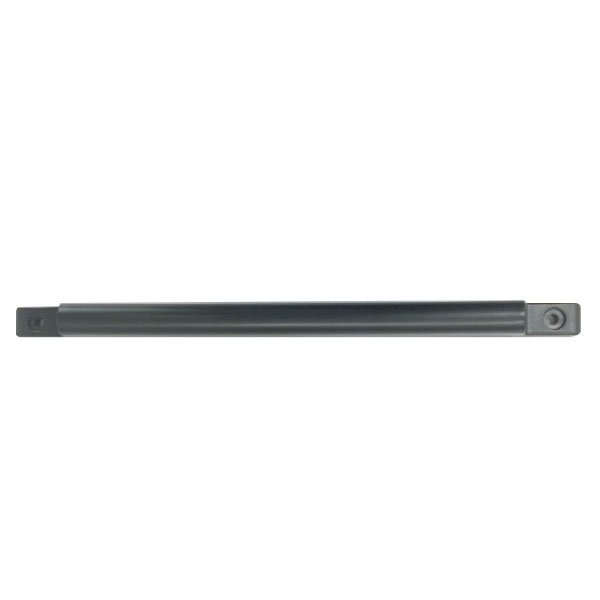RFID Tag UHF1-TAG3 Ultra High-Frequency Tag | eSSL
In addition to biometric technology, Radio Frequency Identification (RFID) tags are also becoming increasingly popular as access control systems. RFID tags, which contain an encoded identifier, are attached to objects such as doors, keycards, or other forms of identification.
When an authorized user comes into contact with an RFID tag, the tag will be read and the user’s identity can be verified.
This type of access control system is convenient, secure, and efficient, and is being adopted by many organizations for their access control needs.
Another type of access control system that is gaining popularity is RFID tags. RFID tags are small devices that are attached to products or people that contain a unique code. This code is used to identify and authenticate the user or product.
The advantage of RFID tags is that they are more cost-effective and more efficient than traditional access control methods.
Another type of access control system is the radio-frequency identification (RFID) system. RFID is a technology that uses radio waves to capture and read information stored on tags.
These tags contain unique identification numbers, which are read by RFID scanners and used to track or grant access to a particular asset.
This system is especially useful in controlling access to large facilities, where multiple people may need access, and where traditional methods of authentication are not practical.
Another form of access control system that is growing in popularity is the use of Radio-Frequency Identification (RFID) tags.
These tags are a type of wireless identification system that can be attached to physical objects, allowing them to be identified from a distance.
The tags contain a chip and antenna that can send signals to a reader. This technology has applications in many industries, such as retail, healthcare, and government, due to its convenience and accuracy.
Product Specifications:
| Ultra High-Frequency Tag | ||
|---|---|---|
| Working Frequency | 860~928MHz | |
| Reading Distance | Up to 10 meters for UHF1-10E and UHF1-10F (Determined by the environment and reader) | |
| Protocol | ISO / IEC18000-6C, EPC global Class 1 Gen 2 | |
| Memory Capacity | 272 bits | |
| Chip | G2XM | |
| Storage Structure | EPC : 96bits, UID / TID: 64bits, User: 512bits | |
| Access Password | 32bits, Kill Password: 32bit | |
| Data Storage | 20 years (Only for chips) | |
| Erase Endurance | 10,000 times(Only for chips) | |
| Environmental Requirements | RoHS Certificate | |
| Storage Temperature | 0~40℃ | |
| Storage Humidity | 40%-70%RH | |
| Working Temperature | -30~60℃ | |
| Dimension | 249 * 13.8 * 18 ( mm ) ± 0.5 (mm) | |
| Installation | Fixed on the upper and lower edges of the license plate (Parking Applications) | |
| Typical Applications | • Vehicle Management • Highway (Bridge) Toll Collection Management |
|

Meenal (verified owner) –
Very satisfied with the product. Works smoothly and has a great finish.
Meenal (verified owner) –
Totally worth the money. This product is everything I wanted.
Bhavesh (verified owner) –
Service was fast and efficient. The product works perfectly. Highly satisfied.
Raj (verified owner) –
This was exactly what I was looking for. Works great, and looks fantastic.
Vivek (verified owner) –
The product is simple to use and works really well. Definitely worth it.
Yash (verified owner) –
Very happy with this purchase. It does everything I need and more!
Rishi (verified owner) –
I’m really happy with my purchase. It’s durable, and the features are spot on.
Varun (verified owner) –
Exactly what I needed! It’s functional, high quality, and looks great.
Kunal (verified owner) –
So glad I bought this! The product quality is amazing, and the delivery was quick.
Aarti (verified owner) –
Product works great, and the customer service was very helpful when I had questions.
Arjun (verified owner) –
The product arrived on time, and it works just as expected. No complaints at all!
Nupur (verified owner) –
This product was delivered faster than expected, and the quality is perfect.
Devika (verified owner) –
The product arrived on time, and it works just as expected. No complaints at all!
Saanvi (verified owner) –
Excellent product, and the delivery was faster than I expected. Will buy again!
Kajal (verified owner) –
I’ve been using this for a few days now, and it works exactly as I expected. Very pleased.
Sneha (verified owner) –
I’m loving this product! It’s easy to use and has great features.
Aaryan (verified owner) –
So happy with this product. It works as expected and is of great quality.
Isha (verified owner) –
Very satisfied with the purchase. It does exactly what it says it will.
Manish (verified owner) –
This was a great buy. It works well and looks stylish. Highly recommend!
Meera (verified owner) –
This service is great! Easy to use, and the customer support is super helpful.
Simran (verified owner) –
I’m really impressed with this purchase. The quality is top-notch.
Abhinav (verified owner) –
I’m very satisfied with this purchase. It works as advertised, and I couldn’t ask for more.
Pallavi (verified owner) –
Good product for the price. Performs well and is quite durable.
Gauri (verified owner) –
The product works great, and it’s easy to use. I’m happy with my purchase.
Trupti (verified owner) –
I recommend this product. It’s reliable, and I’ve had no issues with it so far.